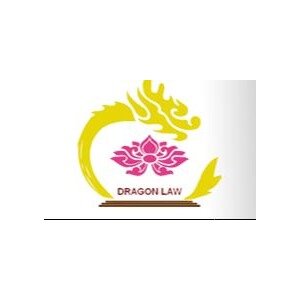Best Child Custody Lawyers in Haiphong
Share your needs with us, get contacted by law firms.
Free. Takes 2 min.
Free Guide to Hiring a Family Lawyer
List of the best lawyers in Haiphong, Vietnam
About Child Custody Law in Haiphong, Vietnam
Child custody law in Haiphong, Vietnam, is guided by the principles outlined in the Vietnamese Marriage and Family Law. Custody decisions are primarily focused on the best interests of the child, emphasizing their well-being, security, and development. Both parents are encouraged to maintain responsibility for their children's upbringing within a supportive framework, whether together or separately. In Haiphong, courts traditionally favor arrangements that provide stability and continuity in the child’s life, and significant emphasis is placed on the rights of children to maintain relationships with both parents, whenever possible.
Why You May Need a Lawyer
There are several situations where you may require legal assistance regarding child custody in Haiphong. Here are some common examples:
- Disagreements between parents about where their children should reside or who should be the primary caregiver.
- Complex cases involving relocation, where one parent wishes to move to another city or country with the child.
- Concerns about child safety or well-being if one parent is engaged in activities that could harm the child.
- Adjustments to existing custody arrangements possibly due to changes in circumstances or parental agreements.
- Grandparents or other family members seeking custody or guardianship of a child.
- International custody disputes where one parent is not a Vietnamese national.
Local Laws Overview
The local laws in Haiphong, Vietnam pertaining to child custody are heavily influenced by the Marriage and Family Law, which provides the legal framework for such cases. Key aspects include:
- The court's obligation to prioritize the child’s best interests in any custody determination.
- Consideration of factors such as the child’s age, emotional ties to each parent, and each parent’s ability to provide care.
- Provisions allowing for joint custody arrangements, encouraging cooperation between parents.
- Guidelines for modifying custody agreements when significant changes in circumstances occur.
- Rights for non-custodial parents to maintain communication and relationship with their children.
Frequently Asked Questions
What factors does the court consider in determining child custody?
The court considers the child’s age, emotional and physical needs, each parent’s living conditions, and the nature of the child’s relationship with each parent. The child’s own preferences may also be considered, depending on their age and maturity.
Can custody arrangements be modified?
Yes, custody arrangements can be modified if there is a significant change in circumstances that impacts the child's welfare. This requires a court application and evidence supporting the change.
Is joint custody allowed in Haiphong?
Yes, joint custody is possible and often encouraged, as it can promote a cooperative co-parenting arrangement that benefits the child.
How is child support determined under local laws?
Child support is calculated based on the financial situation of both parents, the needs of the child, and the ability of each parent to provide support. The court may set specific terms for child support payments.
What should I do if my ex-partner is not following the custody agreement?
If there is non-compliance with a custody agreement, legal recourse is available to enforce the court order. Consulting with a lawyer would be the first step in addressing such issues.
Are grandparents able to seek custody of their grandchildren?
Grandparents can apply for custody or visitation if they can demonstrate that such arrangements are in the best interest of the child, especially in cases where neither parent is considered fit.
Can custody issues be resolved outside of court?
Yes, many custody issues can be resolved through mediation or negotiated settlements, which can be less adversarial than court proceedings.
How do Vietnamese courts handle international custody disputes?
International custody disputes may require consideration of international laws and treaties, such as The Hague Convention, if applicable. Legal expertise in international family law may be necessary.
Does domestic violence impact custody decisions?
Yes, evidence of domestic violence is a significant factor that courts consider, as it directly impacts the safety and well-being of the child.
What is the process for applying for a change in custody?
The process generally involves filing a petition with the court, accompanied by evidence of the changed circumstances that warrant a custody modification. Legal representation can help navigate this process efficiently.
Additional Resources
For individuals seeking more information or assistance, the following organizations and governmental bodies can be helpful:
- The Ministry of Justice in Vietnam, which offers guidance on family law issues.
- Local family courts in Haiphong can provide specific information on filing and procedures.
- Non-governmental organizations focused on child welfare, such as Blue Dragon Children's Foundation, which might offer support and advice.
- Legal aid clinics or family law specialists who offer pro bono or low-cost consultations.
Next Steps
If you require legal assistance with child custody matters, consider the following steps:
- Consult with a family law attorney experienced in the Vietnamese legal system, particularly one familiar with Haiphong's local courts.
- Gather relevant documents, such as existing custody agreements, evidence of changed circumstances, or communications with the other parent, to prepare for consultations.
- Consider attending mediation sessions if both parties are open to negotiating custody arrangements amicably.
- Reach out to local NGOs and family advocacy groups for additional guidance and support.
- Stay informed about legal updates that might affect child custody law to ensure that your rights and the best interests of your child are upheld.
Lawzana helps you find the best lawyers and law firms in Haiphong through a curated and pre-screened list of qualified legal professionals. Our platform offers rankings and detailed profiles of attorneys and law firms, allowing you to compare based on practice areas, including Child Custody, experience, and client feedback.
Each profile includes a description of the firm's areas of practice, client reviews, team members and partners, year of establishment, spoken languages, office locations, contact information, social media presence, and any published articles or resources. Most firms on our platform speak English and are experienced in both local and international legal matters.
Get a quote from top-rated law firms in Haiphong, Vietnam — quickly, securely, and without unnecessary hassle.
Disclaimer:
The information provided on this page is for general informational purposes only and does not constitute legal advice. While we strive to ensure the accuracy and relevance of the content, legal information may change over time, and interpretations of the law can vary. You should always consult with a qualified legal professional for advice specific to your situation.
We disclaim all liability for actions taken or not taken based on the content of this page. If you believe any information is incorrect or outdated, please contact us, and we will review and update it where appropriate.










